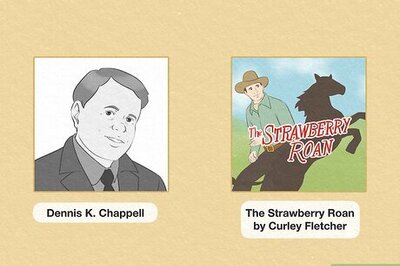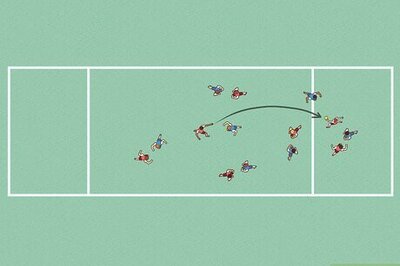
views
Cherokee Native American Last Names

The Cherokee peoples are an indigenous Native American group that historically inhabited the southeastern United States, including areas now known as Georgia, Tennessee, South Carolina, and North Carolina. Cherokee Nation’s naming practices have historically focused on descriptive and personalized names that correlate to someone’s personality, appearance, or achievements. Here are some common and popular Cherokee surnames: Ahoka: “She brings happiness.” or "Without sorrow" Awiakta: “Eye of the deer.” Catawanee: Of a clan in the Cherokee nation. Kanati: “Lucky hunter.” Sequoyah: “Sparrow” or “pig’s foot.” Tsali: “Fox” or “Charles,” a notable Cherokee figure who represents bravery and sacrifice.
Apache Native American Last Names

The term “Apache” encompasses several indigenous groups that once occupied the southwestern U.S., including present-day Arizona, New Mexico, Colorado, and Texas. Surnames were actually not common amongst the Apache tribes until the late 1800s and early 1900s, when colonization and westernization began to influence these communities. The names they have used, however, are often very descriptive and may even represent a unique story or legend. Animal names are also very common, and they’re usually used to symbolize a specific virtue. Here are some popular Apache surnames: Altaha: “High,” “elevated,” or “mountain dweller.” Dosela: “Willow.” Goseyun: “Warrior.” Kaywaykla: “Following the footpath.” Magoosh: “Hunter.” Tazbah: “Sea.”
Navajo Native American Last Names

The Navajo (or the Diné, in their own language) are a nomadic people who historically lived in the southwestern part of the United States—including modern-day Arizona, New Mexico, and Utah. Like many indigenous tribes, Navajo surnames were not traditionally passed down from family member to family member. Rather, each person had a unique surname that reflected their personal characteristics and physical features. This largely changed in the 20th century, when Western practices impacted the Navajo, leaving us with the common Navajo surnames that we know today: Acothley: “Cowboy.” Begay: “His son.” Benally: “His grandchild.” Bylilly: “Magical power.” Hatahali: “Medicine man.” Nez: “Tall” or “big.” Yázhí: “Little one” or “young.” In modern times, this surname is often written as the Anglicized “Yazzie.”
Sioux Native American Last Names

The Sioux peoples include the Dakota, Lakota, and Nakota Tribes that originated from (an area now known as) Wisconsin and Minnesota. Later on, the Sioux migrated to the Great Plains, encompassing modern-day North Dakota, South Dakota, Nebraska, Montana, Colorado, and Wyoming. The unique surnames of the Sioux could actually change over a person’s lifetime to better reflect their personal growth and significant achievements. However, it was common to combine these names with a clan or family name that was passed down through generations. Here are some common ones: Angpetu: “Radiant” or “daytime.” Canowicakte: “Forest hunter.” Enapay: “Brave.” Howahkan: “Mystic voice.” Ishtasapa: “Dark-eyed.” Mato: “Bear.”
Blackfoot Native American Last Names

The Blackfoot Confederacy is a collection of indigenous groups who historically lived in the Great Plains of North America (this includes present-day areas like Montana, Alberta, and Saskatchewan). Traditionally, Blackfeet people did not use last names. Instead, they’d use a single, unique personal name that was chosen based on a person’s achievements, life path, or relationship with the spiritual world. Here are some examples of those original Blackfoot names: Apinakoisistsi: “Morning bird.” Omahkssksisi: “Big nose.” Sikimiotasi: “Black horse.” Piitaipokaawa: “Eagle child.” Naatowainihki: “Holy singer.” Kinaksipakksikoiyi: “Little Bear.”
Westernized Native American Last Names

Starting around the 16th century, Europeans began to invade and colonize the ancestral lands of Native American or indigenous tribes. Over the next decades and centuries, Native Americans were forced or expected to take on Westernized last names in order to adapt to European culture. These new surnames were typically English or Spanish, or a translated version of a historically Native American name, and they’ve remained common in Native populations to this day. Here are some examples: Smith: “To strike” or “metal worker.” Davis: “Son of David.” Locklear: “Falling water” or “locksmith.” Johnson: “Son of John.” Brown: “Brown.” Thunderhawk: The Anglicized version of the Native surname Četaŋ Wakiŋyaŋ, which directly translates to “hawk thunder.”



















Comments
0 comment